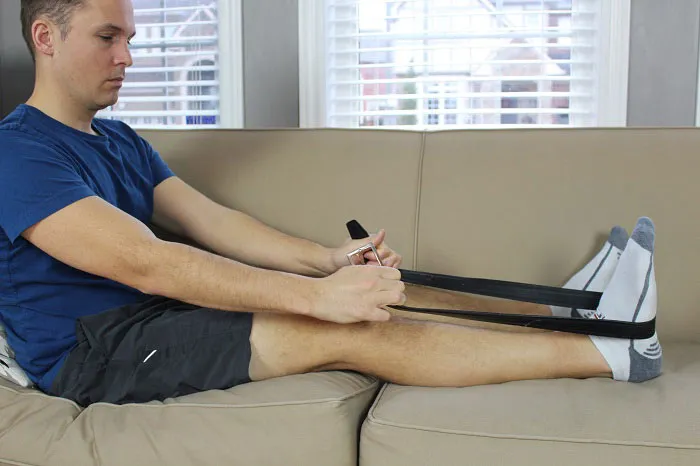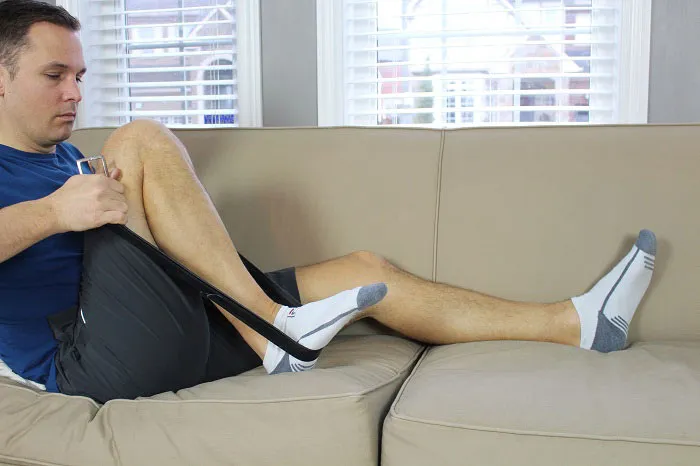Passive Range Of Motion Physiotherapy Exercises For The Knee

Good knee mobility is important. Without it walking, stairs and squatting are painful at best, and sometimes impossible. After a knee injury or surgery regaining normal mobility should be your top priority unless your knee surgeon has asked you to limit your range of motion for a prescribed period of time.
Passive range of motion exercises are a good place to start. They are a gentle but effective way to begin the process of restoring your knee range of motion. They can be done safely in the early stages of injury or recovery from surgery. Use your unaffected knee to compare range of motion so that you know how far you have to go.
How Do I Passively Regain Knee Extension?
This is so easy it can hardly be called an ‘exercise’. However, if your knee is freshly injured it will sometimes feel tight and uncomfortable when in this position. If that is the case, take frequent breaks and do not let pain build up beyond a 3/10 on the pain scale.
Sit on a firm surface with your legs outstretched in front of you. Place a small soft object under the heel of your affected knee. This will cause the knee to be ‘bridged’ meaning that you would be able to pass a small object under the back of the knee. Let gravity do the work and try to relax your muscles so that the back of the knee sags toward the floor.
When you relax your muscles, it is not uncommon to feel an uncomfortable sensation in the front or back of the knee as it sags toward the ground. As long as this sensation is tolerable, carry on. Take breaks as necessary. Try to spend a total of 5 minutes in the bridged position.
How Do I Passively Regain Knee Flexion?
For this exercise you will require a towel or strap and a hardwood or other low friction floor.
Sit as shown in the picture and loop your strap around the foot. Gently pull the strap and allow the knee to bend, moving your foot toward your buttocks. You may feel ‘tightness’ in the area above your knee cap or in the back of your knee as you flex the joint further. Slide your heel toward your buttocks until the discomfort is approximately a 3/10 and slowly slide it back to the start position by letting the strap out slowly. Repeat this movement for 5 minutes taking small breaks as necessary.


These two exercises are a safe and effective way to begin restoring knee range of motion after an injury or surgery. If you have undergone surgery, remember to check your surgeon's orders to see if there are any restrictions on the range of motion allowed at this time. Often surgeons will ask people who have undergone a meniscus repair to avoid flexing the knee past 90 degrees for 6 weeks following the repair.
Of course, this is just the very beginning of a longer rehabilitation process. Make sure to get in to see your physiotherapist and get a comprehensive plan to rehabilitate your knee completely.
Our Pricing
Our Pricing
Our services are reimburseable through most private insurance providers including Cowan, Great-West Life, Desjardins, iA Financial Group, and Standard Life.
Physiotherapy
/45 min session
Licensed Physiotherapist
Personalized treatment plan
Direct billing available
Virtual Physiotherapy
/60 min session
Licensed Physiotherapist
Personalized treatment plan
Direct billing available
Massage Therapy
/60 min session
Registered Massage Therapist
Enhances physical well-being
Direct billing available
Psychotherapy
/60 min session
Licensed Psychotherapist
Promotes long-term wellness
Direct billing available

